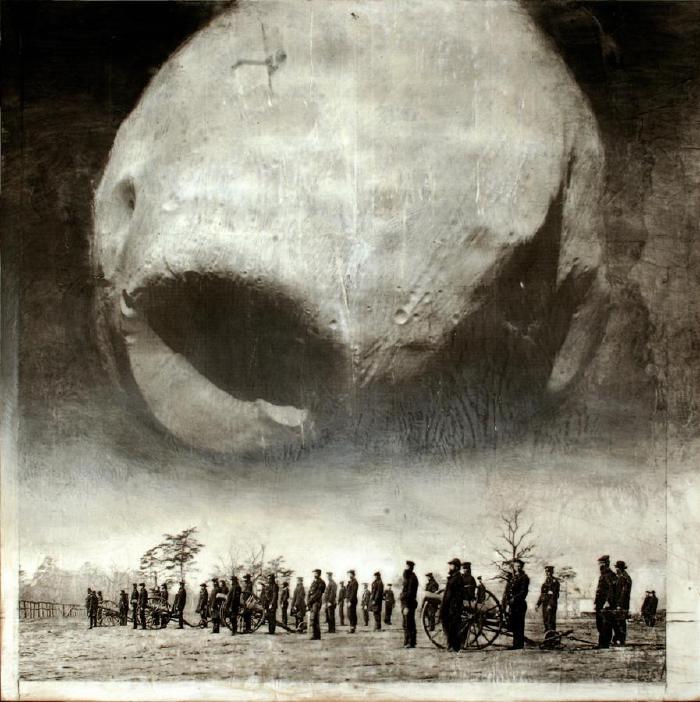The Cruel Stranger
southpole .....
Later: Ruby Plugins for Sketchup
Earlier: Photoshop on a Dime
Came across an interesting post today by author R. Scott Bakker, writing on Tor.com about his novel, “Neuropath.” He has some interesting things to say about the sometimes alien and unpalatable conclusions provided by science, an institution which he likens to a “cruel stranger”:
So here’s the question: What other bitter pills does science hold in store for us? The cruel stranger isn’t finished, you can bet the family farm on that simply because nothing is final in science. So what other stomach churning surprises does it hold in store for us? And what happens if it begins telling us things that are out and out indigestible?
What if science, the greatest institutional instrument of discovery in history, starts telling us there’s no such thing as choices, or stranger still, selves? What if the portrait of humanity that science ultimately paints strikes us as immediately and obviously inhuman?
I have been long intrigued by the ability of science to dish up conclusions in which are difficult to accept. The obvious example is evolution, but evolution is something I personally grew up with and actually find comforting (our literal kinship with the rest of the animal kingdom). However, some of science’s conclusions about the physical world are hard to swallow. Einstein, for one, could never accept the randomness inherent in the quantum theory (“God does not play dice with the universe”). I, for one, am pained by notions such as the inaccessibility of distant stars or the notion of the end of the universe.
The latter idea is particularly difficult and intriguing for me. As a
non-theist with strong Buddhist leanings, what I want to believe (so
long as I have beliefs!) is that the universe will continue to
manifest forever in a sort of infinite, awesome, endless dance of
change. However, while the cosmological picture has evolved
tremendously even in my lifetime, and will probably change more, the
dominant theory (as I understand it) currently has the universe
continually expanding at ever increasing speeds under the influence of
dark energy, as the stars gradually burn out, grow cold and
dark. Ultimately, very little can happen in such an asymptotic
universe… certainly not any form of life as we can currently imagine
it.
On the human scale, one struggles to accept one’s own mortality, but it is a comfort to think of the world continuing on. Of course, the eventual fate of the Earth is likely evaporation as the sun expands. But the cosmos will always be there, with new beings, new civilizations, or at least, the vast beauty of astronomical phenomena. Or will it?
Forget mortality, forget the utter insignificance of humanity in the crushing vastness of the cosmos. If the universe itself dies (becomes static), then change itself will come to an end. Where is the comfort in that? Fortunately, cosmology as a science is truly in its infancy (for example the vast majority of the mass-energy in the universe, in the form of dark energy and dark matter, are still almost completely unknown to us), so the picture will probably continue to evolve. But what if science tells us that the universe really has a finite (if very very very long) life span? The Cruel Stranger will have struck yet again… and, certainly, not for the last time.
Later: Ruby Plugins for Sketchup
Earlier: Photoshop on a Dime
